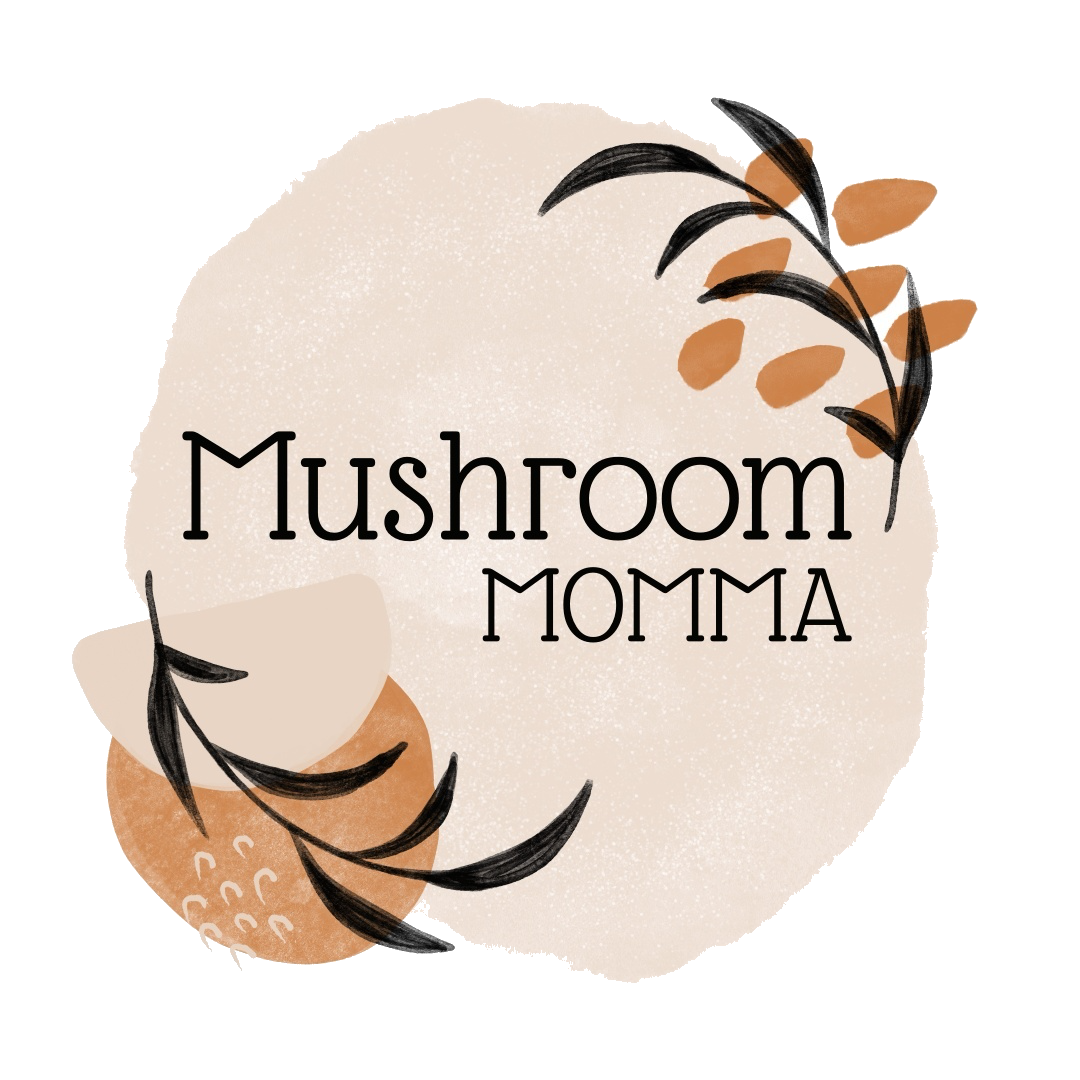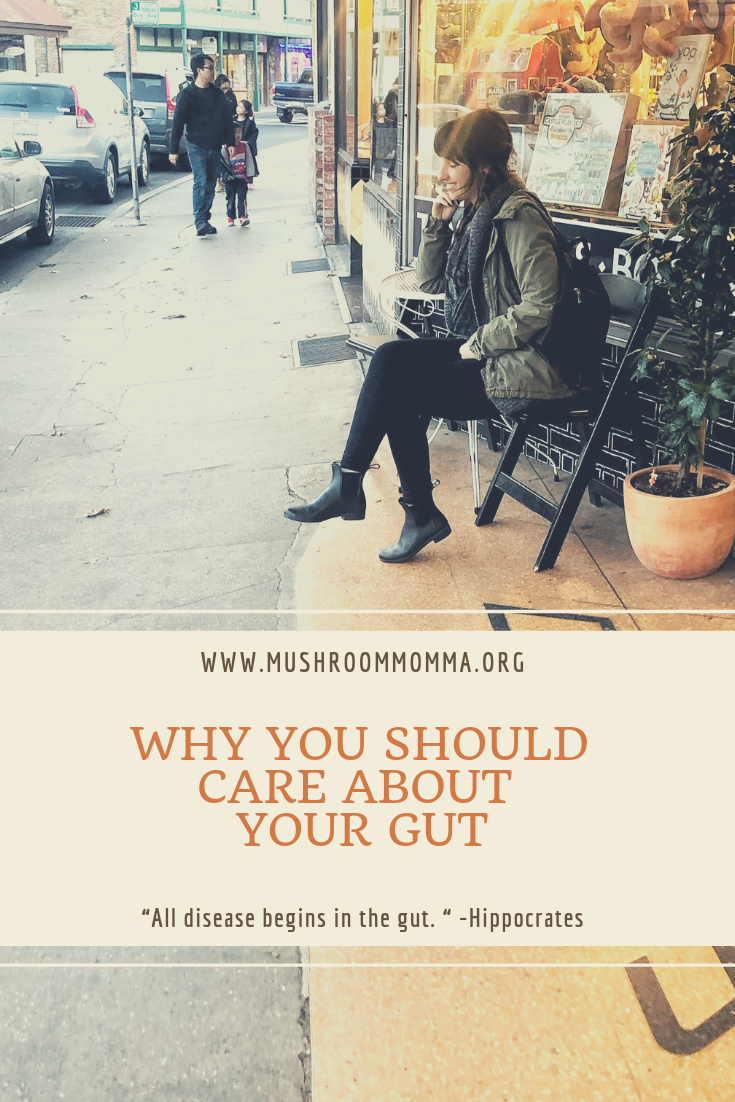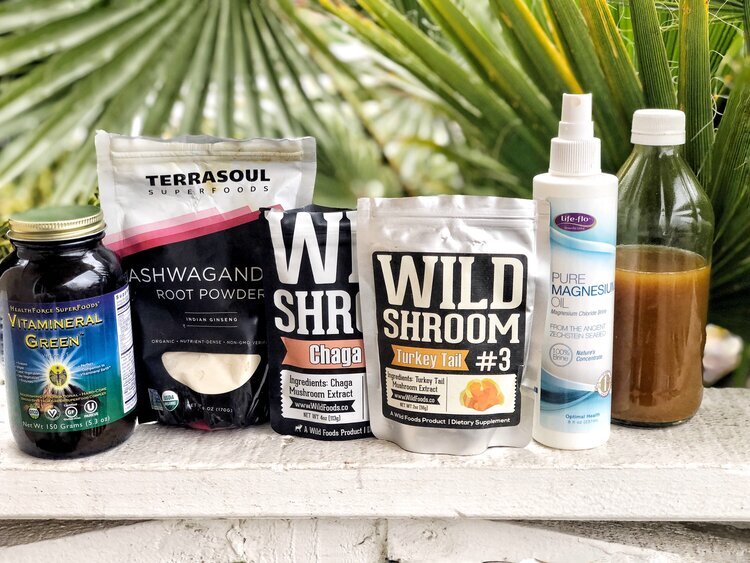Why You Should Care About Your Gut and Our Co-Inhabitants

There is a decline in health all across America. With modern day’s high stress life style, more and more people suffer from a myriad of ailments including autoimmune disease, heart disease, type-2 diabetes, obesity, allergies, skin issues such as eczema and acne, IBS, constipation, chronic fatigue, brain fog, and more. What is happening, and why are we all just accepting this way of life, and dealing with symptoms like it’s just “the way we are”? Well, 3000 years ago Hippocrates said “All disease begins in the gut”, and this rings true, even today.
Your gut plays a massive role in maintaining our health and mental well-being. We house more than 3,000 species of microbes (more than 3 pounds worth) and a majority live in our intestines. These microbes living in our intestines make up our gut microbiome. The body consists of seven different microbiomes, including the skin, mouth, lungs, and nose. The gut microbiome influences our other microbiomes, and healing the gut influences and is replicated to the other microbiomes. This is why all disease truly does begin in the gut. It is the entry point and connected to every disease. The gut is the foundation of a person’s temple of health.
When the gut is in imbalance, this is when disease procreates. Balancing the gut will help with ailments such as bloating, IBS, constipation, stomach pains, and weight management since these all begin in the intestines. Since the gut influences the other microbiomes, healing the gut will in turn help with chronic headaches, exhaustion and fatigue, muscle and joint pain, arthritis, eczema and acne, insomnia, heart disease, allergies, autoimmune disease, type-2 diabetes, respiratory system, immune system, and some even say it can help heal cancer. Not only that, but the gut a major detox organ. It is a toxic dumping ground, all the toxins our body takes in, the gut gets rid of it. Having a healthy gut detoxifies the body and brings it to homeostasis.
The gut also plays a role in our mental health. What is going on in your gut, could affect the brain as well. You know the “gut feeling” you get, when you just know? Well, that is because the gut and brain are truly connected. A large nerve called the Vegus Nerve runs from the brain to the gut. This is why when you are stressed, typically it can be felt in the gut- constipation, stomach pains, etc. The opposite also happens- a bad gut affects brain health and your mental state. An inflamed gut can cause an inflamed brain. Theres also more serotonin receptors in the gut lining than there is in the brain. Serotonin is responsible for your mood , mental health, and happiness. Balancing the gut ecosystem can change the brain.
Sourdough bread. Fermented flour created a natural yeast that gives it its characteristic sour flavor..
How did we get to this state? Number one is antibiotics. Antibiotics can do wonderful things to help heal from terrible diseases, but they are also widely overused. Antibiotics change the composition of the gut, and it can take 6 months to bring it back up. Not only that, research is finding that it never really gets back to its base. With each use of antibiotics, it gets further from its ability to reflourish. Another reason our health has declined is the food we eat. Most of our foods are nutrient deficient and processed. These foods then deplete the gut and it becomes “leaky” or permeable, which affects the blood-brain barrier as well. This, along with stress, causes the downfall of our health.
To heal the gut, we need to give it a diverse range of good bacteria. Lab produced probiotic supplements are the most common, however many cannot survive in the harsh stomach acid in order to get to the intestines, and typically they are only one strain of bacteria rather than a diverse range. When our gut is healthy, it flourishes like a lush garden. Nutrient deficient foods, stress, and antibiotics turn that garden into a barren, lifeless, dirt pile without life. Probiotic supplements are like throwing seeds at the dirt and expecting it to reflourish. Sure, a few things may grow. There will be no diversity, and they probably won't grow very long. Real foods containing beneficial bacteria (probiotics) and microfertilizers (prebiotics) found in nature have a better chance of helping us by supplying a more diverse range of probiotics and delivering them to our colon than lab produced strains of over the counter probiotics. They give the gut what it needs to produce that lush, thriving garden within.
Coconut milk yogurt. Yogurt cultures stirred into coconut milk and left to ferment give it its thick and tangy flavor.
These beneficial bacteria containing foods are known as fermented foods. Fermented foods play a vital role in the restoration and maintenance of good health. They help with the absorption of nutrients in the food we eat, and helps helps produce vitamins B3, B5, B6, B7 (biotin), B9 (folate), B12, and K. These help enhance absorption of minerals, fight off pathogens, digest food, and influence the metabolism.There is evidence of fermentation dating back 9,000 years ago from clay pots. Fermentation has been practiced all across the globe as a way to preserve foods, and make them safe to eat beyond their fresh state. This is due to the beneficial bacteria’s ability to lower the pH and create an acidic environment , which makes it inhabitable for pathogens. Fermented foods may be one of the safest foods to consume, but they take us out of our comfort zone with what we know about food. When you become a fermenter, your role is to create an environment with favorable conditions, and allow your food to sit out and rot, sometimes weeks, while microorganisms enhance your food or beverage. It goes against everything we know about food, you have to break through everything you've been taught, and trust your senses.
Kombucha, fermented sweet back tea. A SCOBY (symbiotic culture of bacteria yeast) pellicle grows on top as a by product of the fermentation process.
Want to learn how to make your own Kombucha? Click here
Further Reading and Resources:
Ferment By Holly Davis










